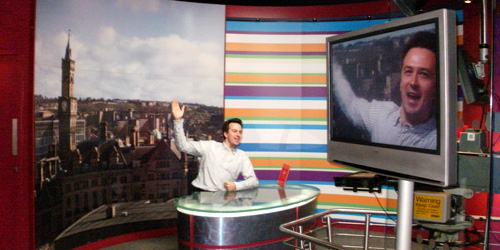What is the optimum amount of feedback?
For MCQ: do we need to provide feedback at a question level? Students can simply list the correct answers and pass the test next time without even thinking. Better practice would be to provide just comments on wrong answers. That may make students think. http://community.articulate.com/forums/p/10283/61554.aspx
For essays: there must always be point(s) how to improve. However, one or two paragraphs would be sufficient, learners will not take more. http://www.lancs.ac.uk/celt/celtweb/files/making best use of assessment feedback.pdf
For practical tasks: students want ongoing feedback to check if they are on the right track. However, they do not use it! Well, only one or two out of the whole class – once or twice each, not more.
Why students may not want to receive feedback?
- getting destructive feedback
- fear of feedback
- not being in position to receive it
- it may not be relevant to the next task
- it may challenge learner’s reputation
- may put a learner under pressure



LTHE Assessment Feedback form
Student’s Name Yaroslav
Marker’s Name Julia Berg/peer
Date 11/01/2013
Module LTHE
1. Assessment criteria
Competence and engagement with appropriate aspects of the UK Professional Standards Framework (UK PSF)
Pass (good) – You demonstrated a good level of competence in areas that are relevant to the module. There is evidence of comprehensive engagement with appropriate aspects of the areas of activity, core knowledge and values of the UK PSF.
Engagement and application of literature
Pass (good) – You demonstrated critical engagement with a range of generic and/or subject specific HE literature and identified clear implications for own practice. Overall you used the Harvard Referencing consistently.
Reflection
Pass – Your reflections are mainly surface, descriptive reflection. You have started to make sense of the learning during the module and there is some self-analysis. You have put an action plan together which lacks specific detail and is not always linked to the reflection.
2. Intended learning outcomes rubric
1 Examine effective teaching, learning and assessment practices in a variety of educational and disciplinary contexts
> good
2 Identify student learning needs in order to formulate relevant and inclusive learning support and guidance strategies
> excellent
3 Discuss how learning technologies and other resources can be deployed within different educational contexts, based on an informed pedagogic rationale
> pass
4 Critically evaluate theoretical perspectives on, and approaches to, student learning and motivation within different educational contexts
> excellent
5 Critically discuss the key features of quality assurance, enhancement and evaluation within a Higher Education context
> pass
3. To improve the work in the future
• In your Educational Autobiography you say that you would like to continue your professional development in the field of pedagogical methodology, and you could do this both through research and by applying it to your teaching, particularly in relation to Problem Based Learning. It might be interesting and useful to take one module and see if you could reconstruct it, by breaking it down into problem based tasks for the students to solve in groups. You are starting to explore this in more detail in your post on your Tutor Observation.
• You have noted the positive impact Helen’s story telling had on students when you observed her class. Do you think this had anything to do with the number of students who had changed their mind about radio drama by the end of the session? And is it something you could use in your own classes to encourage those who may be sceptical or struggling with a concept? I suggest you look further into the power of using narrative / story-telling techniques. This could be a part of your pedagogical approach to discovering more about how students learn.
• You have clearly thought in some depth about the ways in which you can deliver deep learning to your students (in both your posts ‘Observed by Tutor’ and ‘Observed by Mentor’). When tackling complex problems, we learn more by doing rather than listening and you have started to embrace the idea of group work and ‘positive interdependence’ and started research on it. This could be taken further into an action plan as to how to implement group work and peer teaching next term. Maybe you could encourage them to practice what they have just learned, while still in class? Thereby consolidating their learning before they leave. Jennifer Moon has a section on co-counselling and the role of a ‘critical friend’ which might also be useful when thinking about this. (Moon, J.A., (2004). A Handbook of Reflective and Experiential Learning: Theory and Practice. London & NewYork: RoutledgeFalmer., Ch. 10 (p. 147).
4. Comments
Hi Yaroslav,
This is a transformation, congratulations. You have made massive progress with your portfolio in the last few weeks. You have clearly explored the rational of the UKPSF and critically engaged with the literature and I think this must be much harder for you, coming from the position of such long experience as a successful teacher. I have learned a lot from reading your portfolio and it is really interesting to see that you have started to examine your teaching in new ways. You clearly know your subject inside out and have a great deal of patience delivering complex information to students. From reading through your portfolio again, I get the sense that you have come on a long journey through this module and are embracing new teaching ideas, to which you can bring the wealth of knowledge and experience you have acquired over many years. You clearly love your subject and can now communicate that enthusiasm to your students in a variety of new ways. Good luck with the next module and with your career.
Best wishes
Julia
Grade: pass (good),
Please note, the grade is subject to tutor moderation and the external examiners.